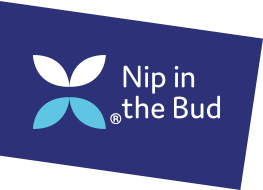Obsessive Compulsive Disorder (OCD): Tips For Teachers Fact Sheet
Obsessive Compulsive Disorder (OCD)
Obsessions – these are repetitive thoughts that are experienced as intrusive to and uncharacteristic of the person thinking them.
Compulsions – are either external behaviours or mental strategies which are used to try and escape from the discomfort of the obsessions.
Be aware and notice
Most people have heard of OCD and it is commonly associated with things like a need for cleanliness and orderliness.
However, there are many different presentations and someone with OCD can worry about absolutely anything.
For example, a child may repeat an action like walking through a doorway because they had a ‘bad’ thought and need to repeat it because they fear the thought may come true if they do not.
Many people have a type of OCD that is not really visible to others but will be characterised by things like seeking reassurance, or doing something internal, like repeating words or saying a prayer in their head.
Watch out for children:
- With repetitive behaviours
- Getting lost in their thoughts
- Seeking reassurance
- Asking to go to the toilet after break (to secretly wash their hands)
At School
With children and young people stuck in their home together with their carers, they may be more at risk of physical abuse, sexual abuse and emotional abuse, and they will certainly have had fewer opportunities to disclose anything that has happened to them to a safe adult outside of their home. And those children who were already identified as being at risk and had the involvement of children’s services, may have had fewer visits and check-ins from professionals, which will have also increased their risk.
All children and young people have also been exposed, over a period of several months, to repeated information from news and social media about the dangers of the Covid-19 virus. And they have had to digest that information without the previous level of social support from their peers and from calm, reasonable, caring teachers and school staff.
And of course, there have been a large number of unexpected deaths due to Covid-19. So, many children will have been suddenly and unexpectedly bereaved. They may not have had the chance to say goodbye due to restrictions in the hospital, and the usual opportunities to mourn together and be supported through their grief may have not been possible.
Emotional coaching
See the OCD section of the Educational Fact Sheet found on the Information for Teachers page of the Nip in the Bud website.
Treatment
OCD is a very common mental health problem and with early intervention is a highly treatable condition. Children who access CBT (Cognitive Behaviour Therapy) for OCD have a very good prognosis.
Further support and information
More information about OCD can be found on the OCD ACTION website. There are also plenty of good books about OCD for example ‘Overcoming OCD’ by David Veale and Rob Willson or Managing OCD with CBT for Dummies by Katie d’Ath and Rob Willson which give a thorough explanation of the condition and how to manage it.
Katie d’Ath
CBT therapist specialising in OCD

